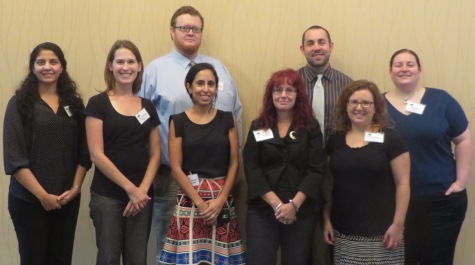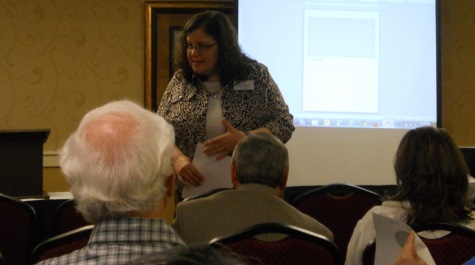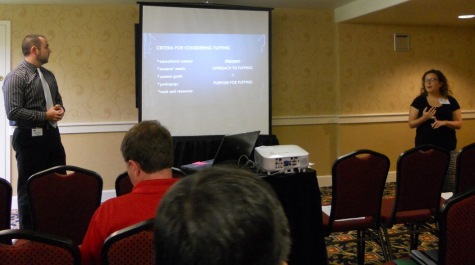Virginia Educational Research Association
School of Education students and faculty recently presented at the Virginia Educational Research Association Annual Meeting 2014 at Charlottesville, Virginia. The conference topic for this year was Technology in Education in Virginia.
EPPL Curriculum and Educational Technology doctoral students Diana Theisinger and Kerrigan Mahoney presented their paper titled, “TPACK in the Classroom: Mindful Technology Integration.” EPPL Higher Education doctoral candidate Tehmina Khwaja presented her collaborative research with Professor Pamela Eddy entitled, “Using Mendeley to Support Collaborative Learning in the Classroom.” EPPL Curriculum and Educational Technology doctoral students Kerrigan Mahoney and Adam Barger presented their research titled, “A Critique of Research-Based Approaches to Flipped Teaching and Learning in Social Studies and English Language Arts.” Professor Judi Harris presented her research, “Not Just Videos for Homework: Six Established Models for Flipped/Inverted Learning and Teaching.” EPPL Curriculum and Educational Technology doctoral student Julie K. Marsh led a discussion session, “Aspects of Design Thinking in Higher Education.”
Reflecting on her experience at VERA 2014, Julie commented, “This was my second year attending and presenting at the Virginia Educational Research Association (VERA). It is a wonderful opportunity to engage with practitioners in both K12 and higher education, especially current doctoral students. VERA is an off-shoot of the American Educational Research Association (AERA), so it is much smaller in scale which allows more interaction with other scholars. My session on Design Thinking in Higher Education was more of a discussion session, so that interaction was essential to not only engaging other scholars in discussion, but also in receiving feedback on my research.”


